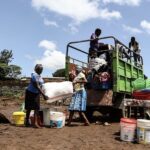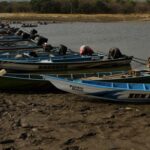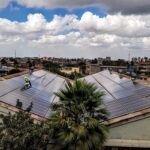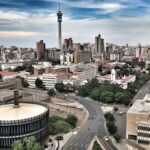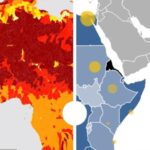Posts tagged with 'WRI Africa'
In Kenya and throughout east Africa, flooding this past April and May wreaked havoc, leaving a path of deadly destruction. The unprecedented deluge of heavy rainfall resulted in a catastrophe that many in Kenya have never witnessed. According to a June ...

After a week of record-breaking rainfall in Rio Grande do Sul, Brazil is experiencing an environmental and humanitarian tragedy. The death toll from the floods is in the dozens. The number of missing persons has surpassed 100. Hundreds are injured, ...

Over the past several months, the climate pattern El Niño has disrupted different regions and sectors across the world. Zimbabwe recently declared a state of disaster, due largely to El Niño-induced drought. The city government in Bogotá, Colombia, announced water rationing as reservoir levels ...

At COP28, global climate leaders congregated in Dubai for the annual opportunity to review countries’ progress on emissions reductions and to increase climate ambition. One of the conference’s focal points was how to rapidly and equitably transition away from fossil ...

For a woman living in an African city, public transport can be a daunting experience. Women usually plan their trips in advance, and consider a multitude of factors before setting out: What is the safest way to reach the bus ...

Against the backdrop of the Africa Climate Summit and Africa Climate Week, Nairobi hosted the UN Environment Programme’s fourth annual International Clean Air Day for blue skies event with Nairobi City County Governor, Sakaja Johnson, on September 7th, 2023. This ...

In Africa, as elsewhere, advances in computing power, data storage, and sensor and satellite technologies have unleashed unprecedented opportunities but also challenges. The mobile phone has become a powerful tool for generating vast amounts of data. This data can, in ...

Climate change is already having a significant impact on Africa’s ecosystems, economy and society. This year alone, 1.8 million Africans were displaced during a prolonged drought, the Democratic Republic of Congo experienced catastrophic flooding, and Cyclone Freddy left a trail of destruction in Malawi and Mozambique. ...

The minibus taxi (MBT) industry is the backbone of South Africa’s public transportation system with a fleet of approximately 250,000 vehicles, operated by thousands of providers, employing some 600,000 drivers. MBTs account for 80% of all journeys taken by taxi ...

South Africa’s cities are economic engines, drawing workers across the country and the continent. Of the country’s 58.8 million population, 68% live in urban areas. Between 2000 and 2014, urban area in South Africa expanded by 1,464 km2. Population projections ...

After two years of unprecedented disruption to transport globally and two years of virtual conferences, Transforming Transportation returned to Washington, DC, March 14-15. More than 900 policymakers, experts and leaders in transport gathered at the World Bank Headquarters to explore ...

Since COP27 wound down late last year (November 6-18), much of the post event commentary has centered on the fact that as observed by The Conversation, the gathering “failed to go beyond the 2021 Glasgow climate pact’s promise to phase down ...

Africa’s population is growing faster than any other continent’s and its urban population is expected to more than double by 2050. This urban rapid growth, which is mostly sprawling “horizontal” growth, as the World Resources Report: Towards a More Equal City shows, is combining with climate ...

Electric buses are key to decarbonizing cities. Compared to internal combustion engine buses and cars, they improve air quality, reduce greenhouse gas emissions, are cheaper to operate and are more reliable in many cases. But the transition to electric buses ...

In Addis Ababa, road traffic crashes kill more than 400 people every year. This is largely due to unsafe street design that prioritizes vehicles over pedestrians, cyclists and other vulnerable road users. With the support of Bloomberg Philanthropies Initiative for ...







